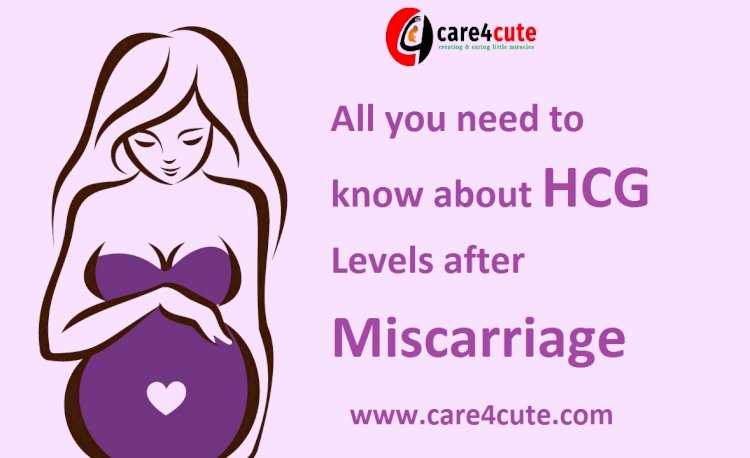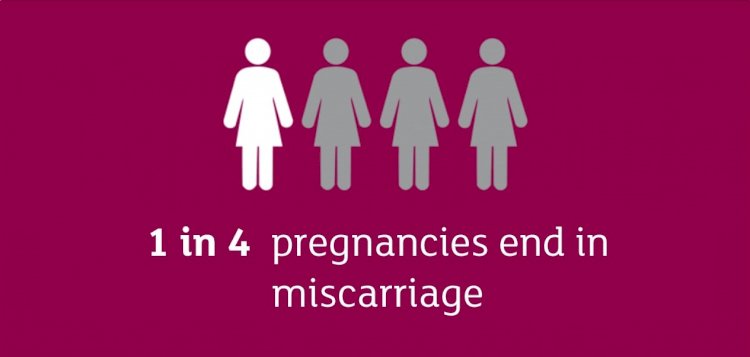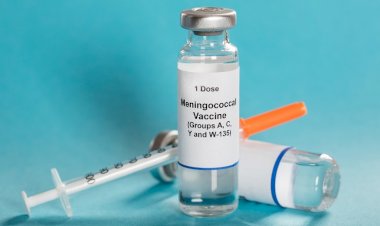All you need to know about HCG Levels after Miscarriage
hCG levels return to a non-pregnancy range (less than 5 mIU/ml) between four and six weeks later after the pregnancy loss (miscarriage).

HCG level is the true measurement of how a pregnancy is progressing and how healthy it is. During a healthy pregnancy hCG levels are known to rise, while in case of the traumatic event of a miscarriage pregnancy hormone levels fall abruptly. What does this sudden fall suggest? How do declining hCG levels affect a body?
Read the post below and find the answer. Here, we are providing some significant information about hCG and how hCG levels normalize after a miscarriage.
What Is HCG?
HCG is a type of hormone which is produced by the body during pregnancy. The full form of HCG is human chorionic gonadotropin. HCG is produced by the cells that form in your placenta. This hormone nourishes the egg once it is fertilized and is attached to the uterine wall.

How long will it take HCG Levels to normalize after a Miscarriage?
Just as each pregnancy is different, in the same way, the capacity of each body to return to its normal health after a miscarriage is also different from that of others. Some key factors that play a significant role here include the duration of the pregnancy as well as the initial amount of hCG that the body produces. In some conditions, the hCG levels return to the normal level within just a few days after a miscarriage. In some other cases, the hCG levels may take a few weeks to return to the normal level after a miscarriage. Here is a little information that will help you understand the changes better:
1. The Level of HCG at the time Of Miscarriage:
The level of HCG in a body is affected by the amount of time that you were pregnant. For example, when a pregnant woman misses her first monthly period, the levels of the hCG hormone within the first two weeks of the missed date are around 1080 and 56,500 mIU/ml. If the level of hCG found in the body is higher, it means that it will take a longer time for the levels to normalize after the miscarriage.
2. The Time It Takes To Normalize:
Once a miscarriage happens, your doctor will try to remove the tissue of the placenta. Alternately, your doctor may wait and see if the placental tissue has detached from your body. After the placenta has been removed, hCG levels plummet to sub-zero. In most cases, the levels will fall below 5mIU/ml. The levels continue to come down for around four to six weeks after the miscarriage. If the miscarriage happens around the eighth to the tenth week of pregnancy, the level of the hCG hormone will be at its highest. It means that it will take the longest time for the body to support the hCG levels to come back to its normal, as compared to a miscarriage that takes place during other weeks.
3. The Reason of the Miscarriage:
The reason for miscarriage can also impact the amount of time it will take for the levels of hCG to return to its normal after the miscarriage. How the miscarriage happened such as, whether it was a spontaneous miscarriage or through a medical procedure, will also determine the time it will take for the hCG levels to go down.
What keeps HCG Levels increasing even after a Miscarriage?
Sometimes, it is possible that even though you went through a miscarriage, your hCG levels continue goes increasing. In case that happens, here are some possible reasons and what they could mean:
1. Choriocarcinoma:
- If your doctor finds that the levels of your hCG hormone are rising even after you have been through a miscarriage, it is significant to find out the reason behind this unusual rise.
- In times of the end term of a pregnancy, the root cells that are present in the placenta can grow after a normal delivery, or even when one goes through a miscarriage. As a result, it can lead to a state which is known as a choriocarcinoma. It is a type of cancer that grows faster and takes place in the uterus, which is the womb. The unusual cells begin to grow in the tissue that would have otherwise formed into the placenta. It is a sort of gestational trophoblastic disease, which refers to a group of conditions where the tumor grows inside the uterus.
- Some of the most common symptoms of choriocarcinoma are irregular bleeding from the vagina and severe pain.
- Around 9 out of 10 women who develop choriocarcinoma after a miscarriage, early diagnosis with chemotherapy can help them treat the condition.
- A molar pregnancy can also lead to gestational trophoblastic disease. It is a kind of pregnancy in which egg that gets fertilized does not reach the maturity level of pregnancy, but still implants itself in the uterus. Once the molar is removed, the levels of hCG also start increasing in some women.

2. Ectopic Pregnancy:
- The levels of your hCG hormone will also go higher if you have gone through a normal pregnancy and an ectopic pregnancy at the same time, even though you may experience a miscarriage in the end. An ectopic pregnancy is a type of pregnancy in which the fetus starts to develop outside your womb. In most cases, it develops in the fallopian tube.
- Your doctor will recommend a surgical procedure or prescribe some medication that will be useful to end the ectopic pregnancy.
- An ectopic pregnancy will never be successful to reach the full term of pregnancy and result in a live birth. As a result, your doctor will always try to use a surgical method or use medications, whatever is most suitable for your case and abolish the pregnancy as soon as possible.
In how much time can you Get Pregnant after Miscarriage – HCG Levels?
You may think that your body will take a long time to be prepared for another pregnancy after a miscarriage. But, in reality, you can get pregnant sooner than you might expect. Once you go through your miscarriage, it is likely that you will have your first monthly period within four to six weeks of the same. Rarely, you may also start to ovulate sooner, as soon as within two weeks after a miscarriage. If you do get pregnant, the hCG levels start to rise significantly. Your doctor will suggest regular hCG tests after you have gone through the miscarriage. This will help him check for when the levels of your hCG hormone rise to more than 5mIU/ml.
Can You Get A False Positive On An HCG Test?
Once your hCG test is detected as positive, it is highly possible that you are pregnant. However, there are some conditions in which the positive hCG result can be a false positive, however, it is a very rare phenomenon. Here are a few cases in which you may experience a false positive on your hCG test:
- If you are suffering from any kind of cancer, especially gestational trophoblastic disease
- If the miscarriage occurred in the initial weeks of the pregnancy
- In some circumstances, antibodies can also affect your hCG levels in a test
- If you are on any medication that contains hCG, this will show a rise in the levels of your hCG hormone
A miscarriage can be a complex condition for your body to cope with, but it will soon heal and get back to its normal state. Make sure you are eating right and taking proper rest to help your body heal faster. Consult your doctor about all the tests you should go through to make sure your hCG levels are fine.
Hope you will find the information useful. Your thoughts, experiences, suggestions or comments are valuable for us; you can share them with us in the comment section.





































Comments (0)